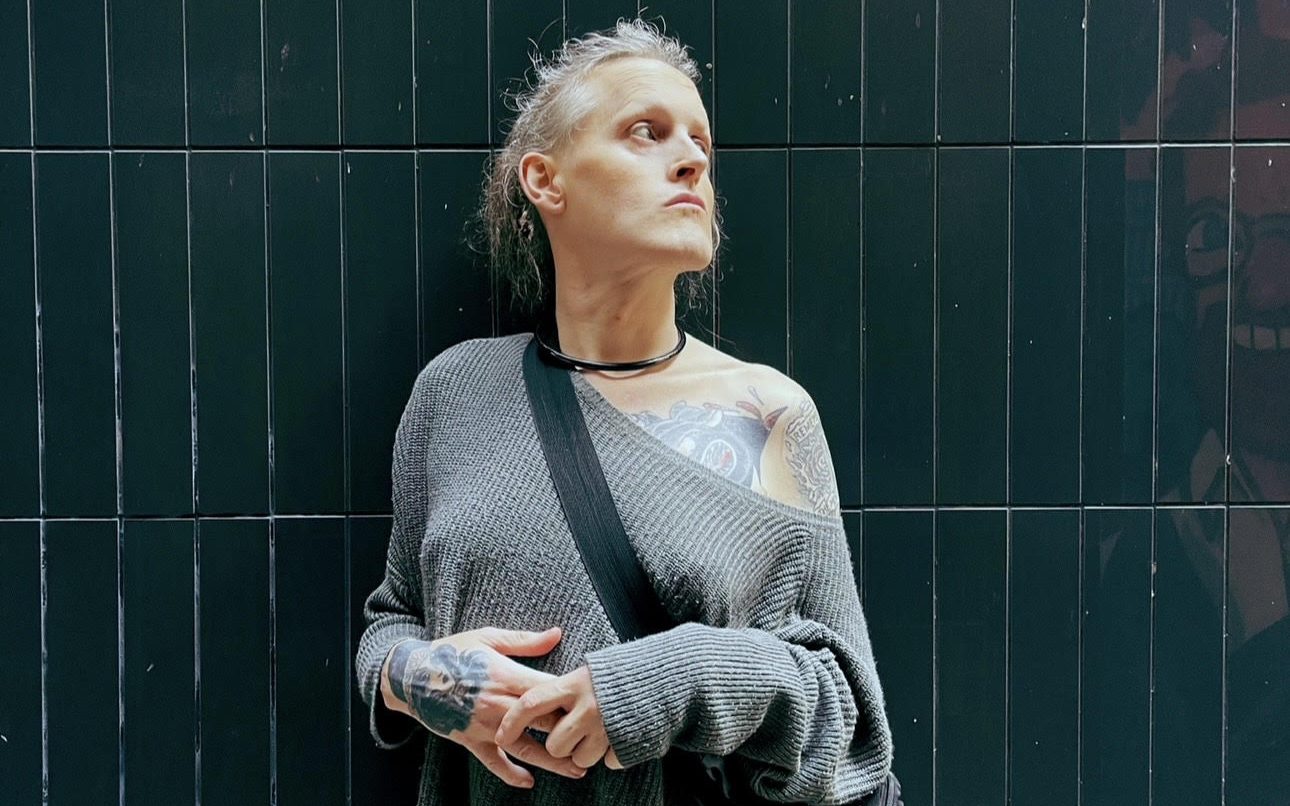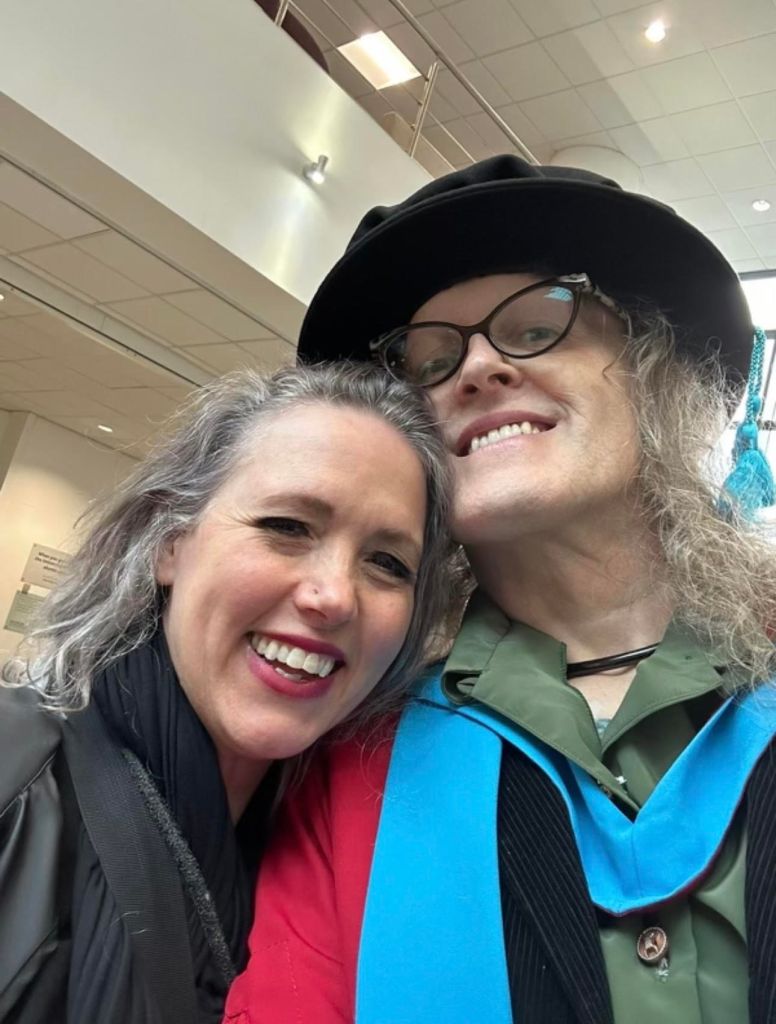Intersex trans woman found love after grappling with lifelong genital surgery complications

Addy, who is intersex and trans, pictured with the love of her life, her wife, Leea (L). (Supplied)
“I’m something that’s never really fit in”, Adeline Berry, who goes by the name Addy, tells PinkNews.
“As a child, I was subjected to genital surgery [in the UK], which has left me with lifelong issues and problems, such as urinary and sexual difficulties.”
Addy is intersex and a trans woman. Up to 1.7 per cent of the world population is born intersex, a figure roughly equivalent to the number of redheads.
“Long before I heard the word intersex or transgender, I was constantly in trouble for not successfully living up to set expectations for me,” recalls Addy, who is now a senior research fellow in the school of human and health sciences at the University of Huddersfield.
According to the Cleveland Clinic: “People who are intersex have genitals, chromosomes or reproductive organs that don’t fit into a male/female sex binary.
“Their genitals might not match their reproductive organs, or they may have traits of both. Being intersex may be evident at birth, childhood, later in adulthood or never. Being intersex isn’t a disorder, disease or condition.”

Intersex people tend to be less visible than other minorities, Addy believes. This is because the “stigma and shame” around medical practices that can occur during their early years.
The history of intersex surgeries is “rooted in heteronormative and patriarchical perspectives about sex, gender and marriage”, the National Health Law program reports.
Now in her fifties, Addy agrees and says that surgeries such as the one she had as a child “originate in efforts to eradicate homosexuality” and “guarantee heterosexuality”.
Between 1930 and 1960, various forms of genital reconstructive surgery were pioneered by doctors whose understanding of these conditions was relatively primitive, and whose main motivation was to make the child’s appearance more “typical” of the gender binary.
These invasive procedures included clitoroplasty, vaginoplasty, phalloplasty and gonadectomy, and they are still performed on intersex babies to this day, despite being discouraged.
The stigma and shame that Addy describes was present throughout her childhood as she was brought up strictly Catholic. She grew up in Ireland and lived in the US for a long time before returning to the UK.
Being intersex can present in about 40 different ways. The most common traits include a combination of chromosomes, and mixed genital and sex organs.
‘We’re just incredible compatible’
Addy who has been happily married to wife Leea since 2009, has written many papers on the topic of intersex people, and, in 2022 she published Ageing in Obscurity: a critical literature review regarding older intersex people.
Despite her hardships, including a lack of sensation in her genitals because of surgery, Addy says she’s “incredibly fortunate” to be in love and married to someone extremely compatible.
She hasn’t always been compatible with people she’s hooked up with, but she and her Leea clicked right away.
Praising the LGBTQ+ community for having a wider acceptance of bodily diversity and a broader spectrum of sexual activities to choose from, she says queer sex enables her to have options.
Speaking of her wife, she says: “It’s been nearly 20 years of me wondering how she’s real. She’s my very best friend. She’s my everything and it’s been that way since we met. We’re just incredible compatible.
“My wife already had an intersex family member,” she adds, and they have been nothing but welcoming.

Despite her wife’s acceptance, she admits that she’s “not for everyone,” even at times when people perhaps thought she was for them.
Addy is open about her sex work during her younger years, when she had “a couple of good relationships, and some bad, like anyone”.
She hopes, in the future, surgeries will stop being performed on intersex children so they flourish in the world and live “fulling lives”.
A national study of intersex adults in the US, published in 2020, found that of a non-probability sample of 198 intersex adults, 43 per cent rated their physical health as fair or poor and 53 per cent reported fair or poor mental health.
Addy is currently working on a paper about straight intersex men who “face particular challenges”.
How did this story make you feel?

